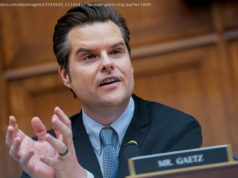We sense the beginning of a sea change in the culture.
If it were just Harvey Weinstein, Dustin Hoffman, Louis C. K. or Roy Moore, the problem would be Harvey Weinstein, Dustin Hoffman, Louis C. K. or Roy Moore .
But it is not. It is at least 20 or more men in the last few weeks. It is many more men in the last few years. It will be more men still in the days to come.
Seemingly almost every day now, as the “#MeToo” campaign of no-longer-silent victims sweeps the country, another name surfaces of a prominent and powerful man who allegedly — and we emphasize allegedly — engaged in sexually inappropriate conduct, harassment or even criminal assault. On Thursday, it was the comedian Louis C. K. On Friday, it was once again Larry Nassar, a star Olympic gymnastics doctor.
Their actions, if true, are deplorable, and it is high time every creep is held accountable. Yet the sheer number of alleged offenders amounts to an indictment not just of these men, but of an entire culture — our American culture. Woven into the fabric of our culture, though we pride ourselves on our progress toward gender equality, is a corrosive sense of male entitlement.
There is something in the water — or, rather, in how we raise and school our children, and in how we reward and punish men and women — that gives many men a sense of permission to objectify, abuse and exploit women — and also other men — sexually and otherwise. We have a Hollywood problem, to be sure, but just as much a grassroots American problem.
If for a long time men like Weinstein and Bill Cosby thought they could get away with their abhorrent behavior, it is because they could.
We are saying nothing new here. We know that. Women’s rights advocates have been saying as much for generations. The “#MeToo” campaign, though, is creating a new level of awareness about the problem of male entitlement. The public is being schooled in a greater appreciation of how sexual harassment plays out subtly and blatantly — not always by men, but mostly — in the workplace and elsewhere.
We sense the beginning of a sea change in the culture.
The range of recent alleged transgressions is breathtaking, and they vary in their degree of offensiveness. We’re not sure, for example, what to make of Illinois State Sen. Ira Silverstein’s email dalliance with a victim’s rights advocate. At first glance, it feels like an inappropriate but silly flirtation. We look forward to seeing what the legislature’s newly appointed inspector general concludes.
But we sure know what to make of Weinstein’s alleged brutish behavior. Criminal charges, which could be coming, sound right.
Bill Cosby| AP file photo
Between those extremes are a whole lot of other alleged offenses, some more egregious than others, by a whole lot of men. Each case deserves to be judged on its merits. Justice is on the line, but so too are reputations and careers.
Studies say that very few accusations of inappropriate sexual conduct are false, perhaps as few as 2 percent. On the contrary, most sexual harassment in the workplace is never even reported. Victims don’t speak up for fear of retaliation, which again reflects something wrong in the culture.
But here in Chicago we also know, as well as anybody, that false accusations are not impossible. We learned the hard way in the early 1990s when a young man claimed to have been sexually abused years before by Cardinal Joseph Bernardin. The accuser later retracted the claim completely, saying he came up with the notion while under hypnosis, and begged Bernardin’s forgiveness.
When powerful men use their position to sexually harass or abuse others, the comforting public response is to tuck it away in somebody else’s cubbyhole. It is a Hollywood problem, or a professional sports problem, or a Silicon Valley problem, or a media problem, or a music industry problem, or a Wall Street problem, or a Washington problem or a Springfield problem.
But it all adds up: It is an American problem.






